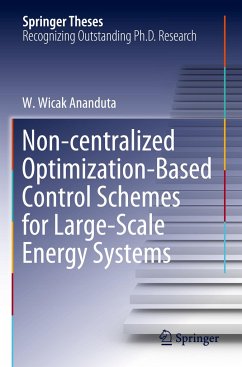This book describes the development of innovative non-centralized optimization-based control schemes to solve economic dispatch problems of large-scale energy systems. Particularly, it focuses on communication and cooperation processes of local controllers, which are integral parts of such schemes. The economic dispatch problem, which is formulated as a convex optimization problem with edge-based coupling constraints, is solved by using methodologies in distributed optimization over time-varying networks, together with distributed model predictive control, and system partitioning techniques. At first, the book describes two distributed optimization methods, which are iterative and require the local controllers to exchange information with each other at each iteration. In turn, it shows that the sequence produced by these methods converges to an optimal solution when some conditions, which include how the controllers must communicate and cooperate, are satisfied. Further, it proposesan information exchange protocol to cope with possible communication link failures. Finally, the proposed distributed optimization methods are extended to the cases with random communication networks and asynchronous updates. Overall, this book presents a set of improved predictive control and distributed optimization methods, together with a rigorous mathematical analysis of each proposed algorithms. It describes a comprehensive approach to cope with communication and cooperation issues of non-centralized control schemes and show how the improved schemes can be successfully applied to solve the economic dispatch problems of large-scale energy systems.
Bitte wählen Sie Ihr Anliegen aus.
Rechnungen
Retourenschein anfordern
Bestellstatus
Storno








